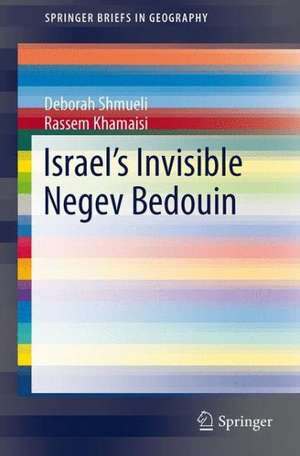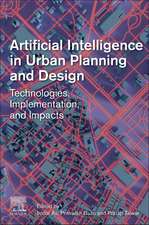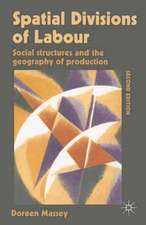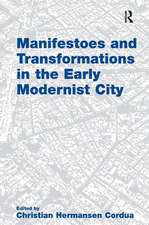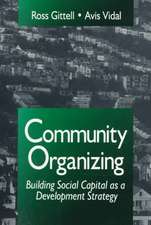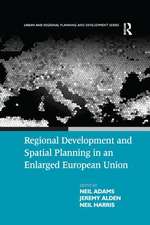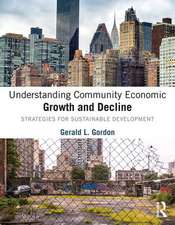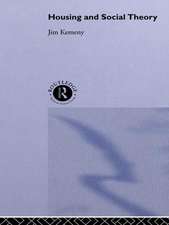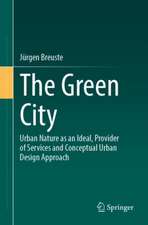Israel’s Invisible Negev Bedouin: Issues of Land and Spatial Planning: SpringerBriefs in Geography
Autor Deborah F. Shmueli, Rassem Khamaisien Limba Engleză Paperback – 24 iun 2015
Din seria SpringerBriefs in Geography
-
 Preț: 377.18 lei
Preț: 377.18 lei -
 Preț: 380.25 lei
Preț: 380.25 lei -
 Preț: 380.63 lei
Preț: 380.63 lei -
 Preț: 411.32 lei
Preț: 411.32 lei -
 Preț: 379.09 lei
Preț: 379.09 lei -
 Preț: 381.98 lei
Preț: 381.98 lei -
 Preț: 381.98 lei
Preț: 381.98 lei -
 Preț: 376.22 lei
Preț: 376.22 lei -
 Preț: 314.59 lei
Preț: 314.59 lei -
 Preț: 340.12 lei
Preț: 340.12 lei - 15%
 Preț: 469.09 lei
Preț: 469.09 lei -
 Preț: 376.22 lei
Preț: 376.22 lei -
 Preț: 345.52 lei
Preț: 345.52 lei -
 Preț: 377.35 lei
Preț: 377.35 lei -
 Preț: 376.22 lei
Preț: 376.22 lei -
 Preț: 347.31 lei
Preț: 347.31 lei -
 Preț: 411.93 lei
Preț: 411.93 lei -
 Preț: 377.35 lei
Preț: 377.35 lei -
 Preț: 378.92 lei
Preț: 378.92 lei -
 Preț: 350.65 lei
Preț: 350.65 lei -
 Preț: 379.09 lei
Preț: 379.09 lei -
 Preț: 376.80 lei
Preț: 376.80 lei -
 Preț: 376.80 lei
Preț: 376.80 lei -
 Preț: 347.74 lei
Preț: 347.74 lei -
 Preț: 376.22 lei
Preț: 376.22 lei -
 Preț: 378.54 lei
Preț: 378.54 lei -
 Preț: 338.70 lei
Preț: 338.70 lei -
 Preț: 414.21 lei
Preț: 414.21 lei -
 Preț: 379.68 lei
Preț: 379.68 lei -
 Preț: 378.34 lei
Preț: 378.34 lei -
 Preț: 384.86 lei
Preț: 384.86 lei -
 Preț: 342.20 lei
Preț: 342.20 lei -
 Preț: 377.57 lei
Preț: 377.57 lei -
 Preț: 343.83 lei
Preț: 343.83 lei -
 Preț: 377.35 lei
Preț: 377.35 lei -
 Preț: 350.81 lei
Preț: 350.81 lei -
 Preț: 378.92 lei
Preț: 378.92 lei -
 Preț: 353.36 lei
Preț: 353.36 lei -
 Preț: 375.62 lei
Preț: 375.62 lei -
 Preț: 149.55 lei
Preț: 149.55 lei -
 Preț: 378.12 lei
Preț: 378.12 lei -
 Preț: 376.43 lei
Preț: 376.43 lei -
 Preț: 347.31 lei
Preț: 347.31 lei -
 Preț: 413.63 lei
Preț: 413.63 lei -
 Preț: 376.43 lei
Preț: 376.43 lei -
 Preț: 344.52 lei
Preț: 344.52 lei -
 Preț: 378.71 lei
Preț: 378.71 lei -
 Preț: 378.12 lei
Preț: 378.12 lei -
 Preț: 447.24 lei
Preț: 447.24 lei
Preț: 377.73 lei
Nou
Puncte Express: 567
Preț estimativ în valută:
72.28€ • 75.46$ • 59.82£
72.28€ • 75.46$ • 59.82£
Carte tipărită la comandă
Livrare economică 05-19 aprilie
Preluare comenzi: 021 569.72.76
Specificații
ISBN-13: 9783319168197
ISBN-10: 3319168193
Pagini: 100
Ilustrații: XI, 102 p. 15 illus., 12 illus. in color.
Dimensiuni: 155 x 235 x 7 mm
Greutate: 0.17 kg
Ediția:2015
Editura: Springer International Publishing
Colecția Springer
Seria SpringerBriefs in Geography
Locul publicării:Cham, Switzerland
ISBN-10: 3319168193
Pagini: 100
Ilustrații: XI, 102 p. 15 illus., 12 illus. in color.
Dimensiuni: 155 x 235 x 7 mm
Greutate: 0.17 kg
Ediția:2015
Editura: Springer International Publishing
Colecția Springer
Seria SpringerBriefs in Geography
Locul publicării:Cham, Switzerland
Public țintă
ResearchCuprins
Chapter One: Introduction.- Chapter Two: Bedouin – Evolving Meanings.- Chapter Three: Arab Communities of Israel and their Urbanization.- Chapter Four: Theoretical Context: Justice, Urbanism and Indigenous Peoples.- Chapter Five – Negev (in Hebrew) or Naqab (in Arabic) Bedouin.- Chapter Six: Evolution of Local Authorities: an Historical Overview.- Chapter Seven: Resettlement Planning 1948 - Present.- Chapter Eight: Lessons Learned.- Chapter Nine: Proposals for Flexible Bedouin Resettlement and Collaborative Planning.
Recenzii
“Filling a gap by providing an analysis of theproblem, while at the same time complementing it with a clearly structuredoverview of all the necessary background information to the subject, this studyadresses newcomers to the topic as well as researchers in a concise manner. …can be read not only with regard to the very specific topic of the NegevBedouin, but also as a study on the change of culture and cultural landscapesin general.” (Constanze Röhl, Archaeologik, archaeologik.blogspot.de, February,2016)
Notă biografică
Dr. Deborah Shmueli is an Associate Professor in the Department of Geography and Environmental Studies at the University of Haifa. She is a planner specializing in environmental policy issues related to water, land use, transportation and solid waste. A strong focus of her efforts is towards environmental and public sector conflict management and community and institutional capacity building. Examples include targeting consensus-based conflict management capacity within communities, NGO organizations, local governments, and district and national Ministries. She has published numerous articles on issues related to planning, conflict management and justice issues. She received her Ph.D. in Architecture and Urban Planning (1992) at the Technion, Israel Institute of Technology, and her M.C.P. and B.S. in Urban Planning from the MIT (1980). Selected Research Areas, Research Grants and Publications follow.
Dr. Rassem Khamaisi is a Prof. in the Department of Geography and Environmental Studies at the University of Haifa. He is a Urban and Regional planner and Geographer, specializing in urban and rural geography. A strong focus of her efforts is towards geography and planning among the Arabs in Israel and the Palestinians in the Palestinians territory and Jerusalem, the beside concentration on public administration and public participation and urban management. Khamaisi has published different research and policy research tackle the urbanization and planning issue among the Arabs and Palestinians. His publication was in the three languages in local and international Journals (in English, Hebrew and Arabic). Publications (both singly and co-authored) in the field of policy research in urban planning and development in Jerusalem and among the Arabs in Israel, such as the urban fabric in Jerusalem, and (The Wall of Annexation and Expansion: Its Impact on the Jerusalem Area), and, (The Impact of the Wall the Arabs In Israel). Other research the Environment Narrative in the Arabs.
Dr. Rassem Khamaisi is a Prof. in the Department of Geography and Environmental Studies at the University of Haifa. He is a Urban and Regional planner and Geographer, specializing in urban and rural geography. A strong focus of her efforts is towards geography and planning among the Arabs in Israel and the Palestinians in the Palestinians territory and Jerusalem, the beside concentration on public administration and public participation and urban management. Khamaisi has published different research and policy research tackle the urbanization and planning issue among the Arabs and Palestinians. His publication was in the three languages in local and international Journals (in English, Hebrew and Arabic). Publications (both singly and co-authored) in the field of policy research in urban planning and development in Jerusalem and among the Arabs in Israel, such as the urban fabric in Jerusalem, and (The Wall of Annexation and Expansion: Its Impact on the Jerusalem Area), and, (The Impact of the Wall the Arabs In Israel). Other research the Environment Narrative in the Arabs.
Caracteristici
Explores historic, cultural and legal framework for understanding settlement policies towards nomadic populations Provides an overview of the current situation and controversies surrounding Israel's Bedouin population Proposes potential policy solutions Includes supplementary material: sn.pub/extras
